
12 minute read
SHINING A SPOTLIGHT
BY TAYLOR JONES
These are interesting times for lawyers working in sports and entertainment. There are new technologies that are changing how content is created and delivered to audiences. And there are long overdue discussions about ethics and inclusivity in sports that are prompting many event organizers, teams and associations to look at their operations in a new light.
Advertisement
Alumni from the Schulich School of Law are playing a key role in navigating these changes. We talked to them not just about how they are having an impact, but also to see what they believe the future has in store for them and their industries.
Grant Borbridge
When Grant Borbridge (’89) heard reports in May 2022 that Hockey Canada had reached a settlement following allegations of sexual assault, it gave him pause. The law school alum had been approached to submit his application to join the organization’s board and now had a decision to make.
“There are people who probably looked at that situation and thought, ‘I want nothing to do with that,’” recalls Borbridge, Vice President Legal and Corporate Secretary at Trimac, one of North America’s largest transportation service companies.
“I kept thinking that there were solutions that were worth exploring, even though the situation was troubling and tragic. And I believed I could help the organization change for the better while ensuring that people are held accountable for their actions.”
In December 2022, Borbridge was elected to the board of Hockey Canada. In January 2023, he was appointed chair of the governance committee. The opportunity has proven to be a good fit for him. He has extensive expertise in entity governance, specifically around how organizations can operate with integrity while considering the interests of multiple stakeholders. He has provided governance advice to not-for-profits such as Fort Calgary and the Calgary Women’s Emergency Shelter in a volunteer capacity. And he has long been involved in hockey as a player, parent, coach and volunteer, not to mention as a legal advisor when required.
But there was another factor that made the role the right fit for him: the opportunity to implement the governance recommendations made by the Honourable Thomas Cromwell. “In a way, it feels like I’ve come full circle, because he was one of the professors at Dalhousie law school while I was there,” Borbridge says.
Although the implementation of these changes is a priority for Borbridge, he is equally interested in supporting cultural and attitudinal changes that will make Hockey Canada, and the sport, safer, better and more inclusive. That means engaging the next generation of hockey players and leaders at an early age.
“If we focus on educating and inspiring the four-year-olds who are just getting started, and their parents or families, I think that will work wonders,” Borbridge says. “In 20 years, we may be able to look back and say that was the change that was needed.”
Borbridge sees his law school experience as invaluable in making such change possible. He recalls how his decision to study here was shaped by the advice of colleagues, including one Alberta judge who effectively eliminated any doubt.
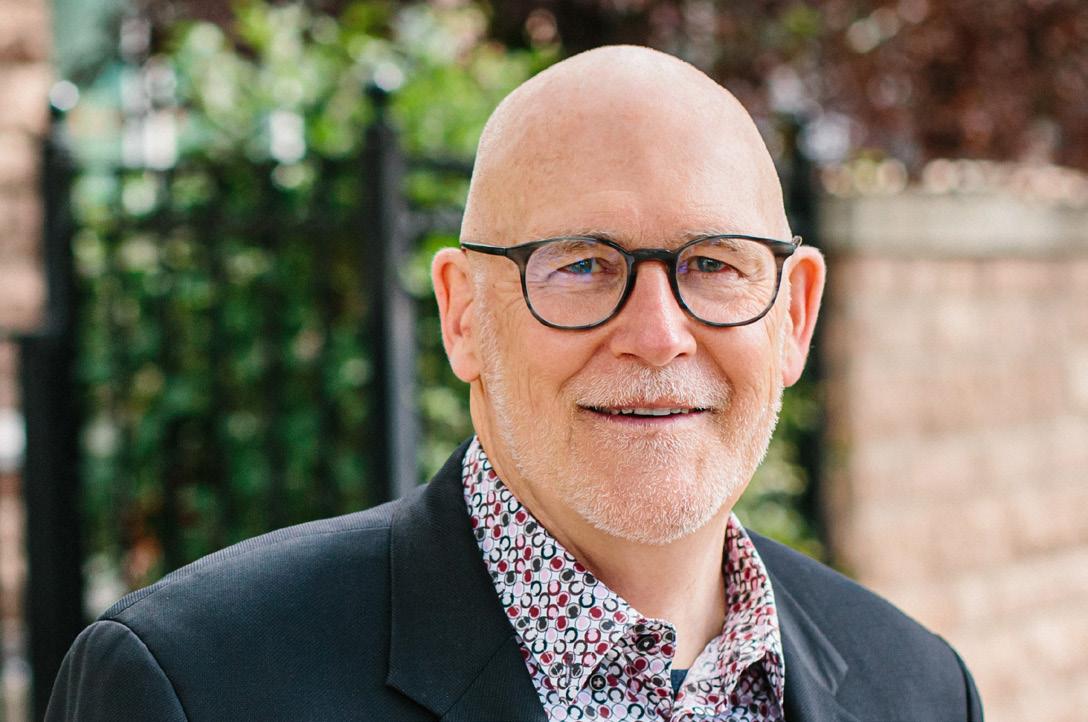
“He told me ‘Anybody who doesn’t go to Dalhousie is making a mistake,’” he says. “Based on that and other endorsements I heard, I felt it absolutely had to be the right place and it was. I have lots of good memories, met lots of good people and have talked about my experience at law school so enthusiastically that my daughter wants to go there after she finishes her undergrad.”
That would be a lovely legacy for Borbridge. So too would be achieving change at Hockey Canada. Already there are positive signs. Staff are more optimistic and committed to progress. And the provincial and territorial hockey associations have indicated they are either on board with recommended governance changes or dedicated to working on recommendations where there are issues or concerns.
“I think we’re headed in the right direction, and it will be a huge win if we can get there,” he says. “Being able to contribute to that progress means a lot to me.”
Lindsay Bailey
As an entertainment lawyer, Lindsay Bailey (’07) knows that client relationships are integral to her work. That, she says, is why she doesn’t have a website.
“I’ve built my practice through word of mouth,” she explains. “I know that the people who come to see me have been referred by someone I have an existing relationship with, and they think there would be a good fit. So that new relationship is already at a good starting point.”
This unconventional approach to marketing has worked wonders for Bailey. She has built a cross-border practice based in Vancouver and Austin that serves a diverse array of creative talent. Although she won’t name names – another sign of how much she values her client relationships – Bailey will say that most of her clients are musicians.
“Contract drafting and deal negotiation is the bread and butter of what we do,” Bailey says. “We’re either bringing a deal to fruition or opening doors and doing introductions to help our clients develop their careers.”
Traditionally, those deals have involved record labels, but Bailey says the streaming and digital music era has increasingly changed that. With a hundred thousand songs being released on average every day, most labels lack the bandwidth to take on new artists to develop from the ground up. However, she doesn’t necessarily see this as cause for concern.
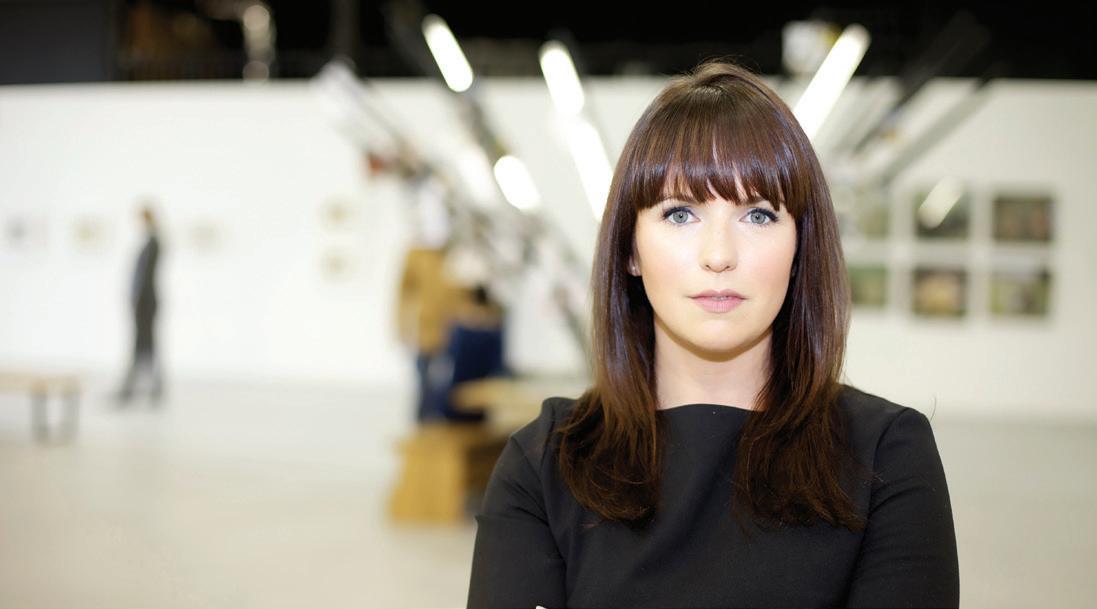
“The digital music industry means you can remain an independent artist, do what you want in a deeply meaningful way and retain both creative control and the lion’s share of the revenue, which you could never do before,” she says. “You just need a really good distributor and a really great entertainment lawyer who knows the business and has the contacts needed.”
Bailey’s journey into the legal profession is as unconventional as her approach to marketing. She initially trained as an art historian in British Columbia, but courses in cultural property law and cultural heritage raised issues that intrigued her. She decided to explore those issues further at the Schulich School of Law.
“Throughout my studies, I was very pointed about going into art and entertainment law, so I did everything I could in intellectual property,” she recalls. “But more than meeting my interests, I also discovered that law school had a deep community underpinning.”
That discovery proved transformative, and it is reflected in Bailey’s many volunteer involvements. They include serving on the board of The Polygon Gallery, the jury of Austin’s Art in Public Places and on the jury of the Junos, among others.
“An American colleague asked me why I do it when I could just lean further into my practice,” Bailey says. “I can trace that back to Weldon, which instilled a passion for civic engagement and community building in my bones.”
That Bailey finds time for these commitments is impressive given the ongoing growth of her practice and her other pursuits. During the pandemic, she became a registered mediator – a complement to the legal services she provides. She is also embarking on a project that aligns all her skills and interests – a new TV show in which a musician will take viewers on musical and cultural journeys through the cities that they love.
“This is an opportunity for me to give back to the industry and expose artists who mean a lot to me to a larger audience,” she says. “I’m really hoping for a long run for this show, which in many ways is the weave of many threads of experience over the years coming together.”
Even so, there is a clear enthusiasm in Kirkwood’s voice as he talks about that legal work in the context of the organization’s diverse portfolio. In addition to owning major league sports franchises like the Toronto Maple Leafs and the Toronto Raptors, MLSE also owns or operates venues, restaurants and broadcast interests. That creates a wealth of opportunities for Kirkwood to apply and expand his legal expertise.
“What I work on in any given day is wide ranging from a legal perspective,” Kirkwood says. “It could be sponsorships, marketing, real estate, HR, labour or technology. But for me, that’s the beauty of this job.”
Occasionally, it can be challenging to keep pace with the legalities involved in that work. One challenge that comes to mind is the privacy laws MLSE must negotiate as its teams’ fan bases become increasingly globalized.
“For example, we have two Toronto FC players who played on the Italian national soccer team,” Kirkwood says. “That means we have people from other jurisdictions who are providing us with personal information. So it means we have a responsibility to ensure that we are complying with privacy regulations in other jurisdictions.”
Resolving those challenges is rewarding for Kirkwood. So too is his involvement with MLSE’s corporate social responsibility initiatives. He has worked extensively with the MLSE Foundation, which supports upgrades of athletic facilities and charities focused on youth. He also played a key role in negotiating the lease for MLSE Launchpad, a 42,000 sq ft facility that is helping youth reach their full potential through sports and life training.
“That’s one of my biggest accomplishments,” Kirkwood says. “We have had program participants who have gone on to management roles with the facility, so it is having an impact. My role is to ensure it continues to do that by making sure it is well funded.”
Taska Carrigan
There are many ways that law school alumni apply their learning in life. Taska Carrigan (’85) used hers to get to Sesame Street. Carrigan didn’t set her sights on the critically acclaimed children’s show. The opportunity came to her when she was working in the program acquisitions and co-productions department at the Canadian Broadcasting Corporation. Her responsibilities involved annual negotiations with the Children’s Television Workshop – now known as Sesame Workshop – to produce the Canadian version of Sesame Street. During one fateful call, she mentioned her husband was working in New York City and she had been going back and forth from Toronto to visit him.
“They told me they were looking for a lawyer,” recalls Carrigan. “I thought it was worth the conversation and, after several months of interviews, I got the job.”
When Darren Kirkwood (’00) tells people he works with Maple Leaf Sports & Entertainment (MLSE), he generally gets a lot of comments about how cool his job must be. He agrees it is, but adds it isn’t always glamorous.
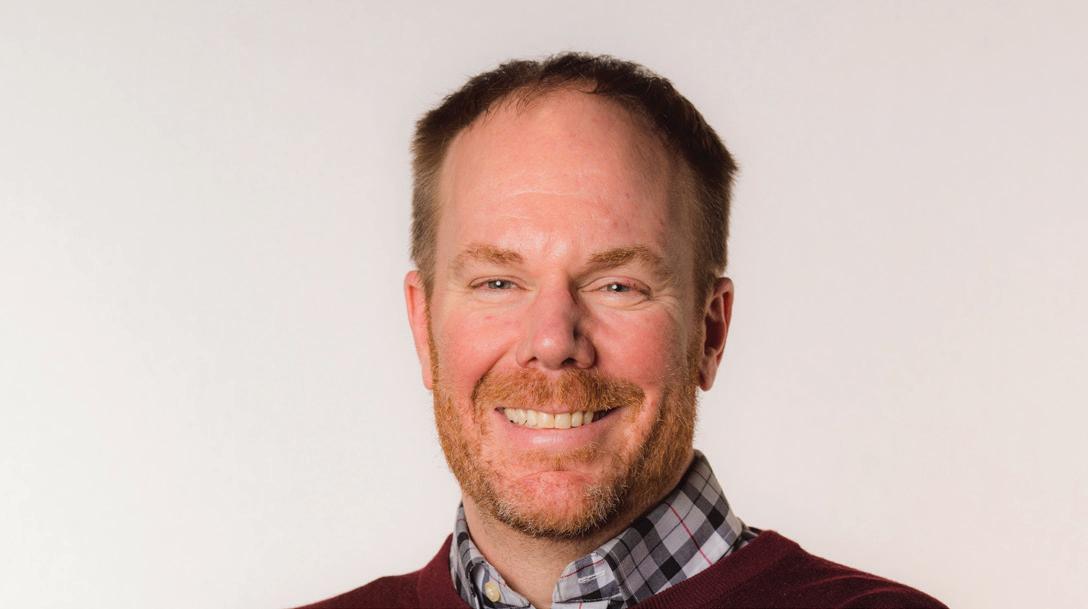
“I really love my job,” says Kirkwood, who serves as the company’s Vice President, Deputy General Counsel. “I get to work with the preeminent sport and entertainment talent in Canada and I love the people I work with. I know I am absolutely lucky to be where I am. But law is law. You are still handling contracts and you are still managing expectations.”
That desire to give back was fostered by the strong sense of community Kirkwood found at Dalhousie. “Dal attracts students from across the country,” he says. “Moreover, your law school peer group is your immediate social and support circle. This contrasts with the experiences that students from major urban centres have shared with me, where people come from the surrounding area, attend class, and return to their non-school environment. The immersive experience of Dalhousie provided me with incredible, close friendships that continue to this day.”
Just as those bonds endure, so do Kirkwood’s ties to MLSE, which span more than 25 years. “My ascension to the vice presidency was just over a year ago,” he says. “There is still much more to learn, and I am still building my brand as a leader in and outside the company. I’m quite happy to be here.”
That was almost 30 years ago. Today, Carrigan is Senior Vice President of Production Management, Operations, Business Affairs and Legal at the non-profit organization that has been engaging and educating kids for more than 50 years. She oversees the legalities involved in producing content – everything from collective bargaining with talent and crews to content distribution agreements. “I think of myself as being part of a group that navigates the relationships we make and then honours them by fulfilling the obligations in the agreements,” she says.
Given Sesame Workshop’s engagement in everything from curriculum work to merchandise licensing, Carrigan’s work isn’t as easy as ‘ABC’. Perhaps the biggest challenge is keeping pace with the evolution of the industry, in particular new technologies and platforms for delivering content.
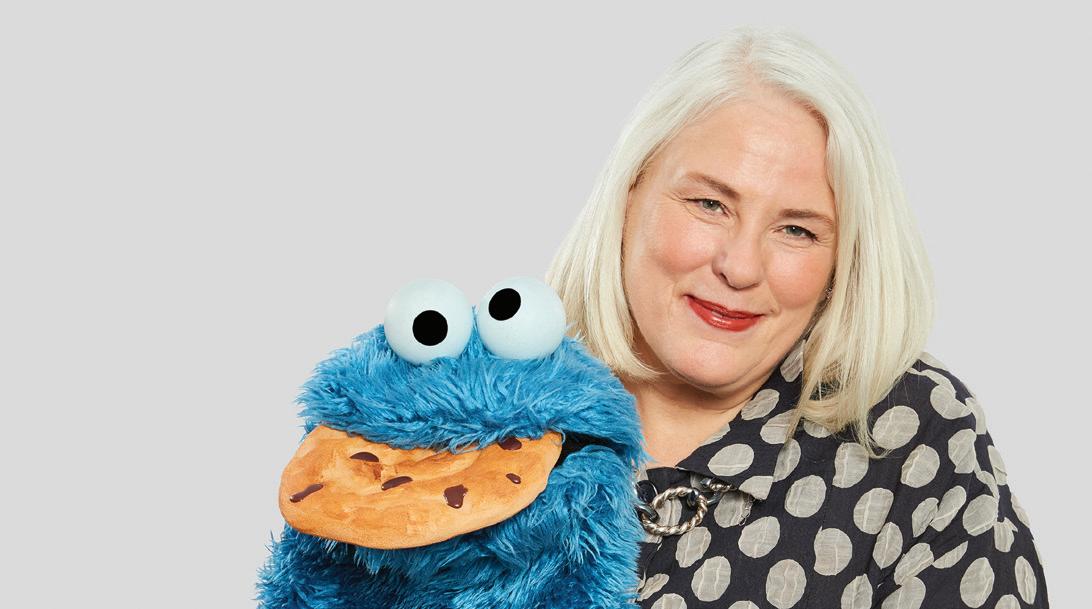
“It’s been a constant learning process,” she says. “How do we create podcasts? How do we make shows for people in different markets around the world? It’s constantly changing.”
Such change delights Carrigan. New seasons of Sesame Street mean navigating shifting tax credits, updated guild rules, new production models and potential strikes. She keeps pace through continual training, which is invaluable in tackling emerging issues such as how the use of artificial intelligence (AI) in content creation impacts relations with the writers guilds and other creative contributors.
“There is a little ambiguity as to where copyright lies in that material,” she explains. “We are restructuring our contracts to require content providers to reveal if they have used AI. In these early days, it’s a challenge to figure out how AI will benefit and/or harm the creative process. I can’t say I have ever been bored at my job.”
Carrigan says her law school experience has been crucial to her success. She recalls how inspired she was by her classmates’ strong commitment to use their experience to create a better society.
“There wasn’t this sense that people were going to graduate so they could make a lot of money,” she says. “The ethos at the law school was one of passionate people who had important things they wanted to accomplish. I think that experience totally, indelibly shaped me.”
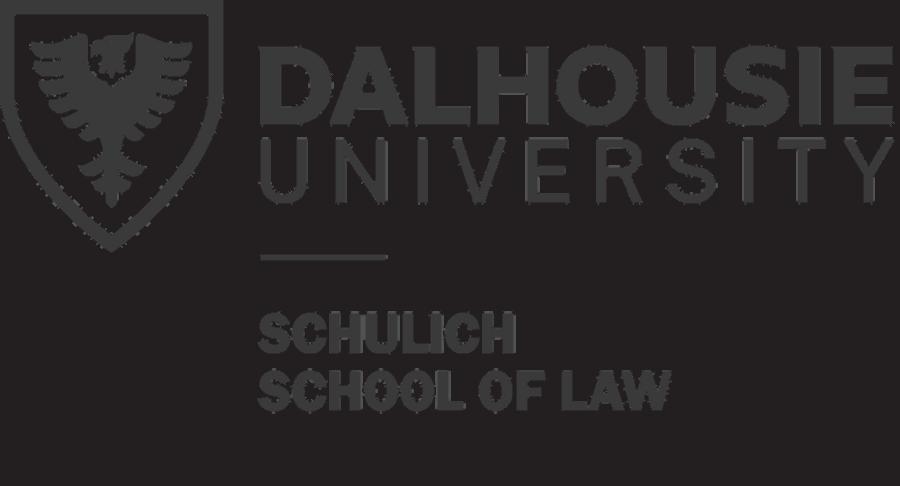
Having found her way to Sesame Workshop, Carrigan has no plans to move on. After all, there are more challenges to take on, and more opportunities to learn and grow.
“There has been so much to do over the years that I never really had time to think about leaving,” Carrigan says. “I am really grateful to be here and have the broad-based experience I’ve had. But more than that, I am delighted that I get to empower people to make content that is meaningful and authentic, and helps the audience see the world the way it should be seen.”
“The bid phase involved meticulous research, a steep learning curve and a requirement to answer complex legal and operational questions. Planning involved not just the tournament, but also national infrastructure and legacy projects with a cumulative spend of $200+ billion. Operational delivery culminated in an event watched by a global audience of five billion, and now we are liquidating and dissolving the local organizing committee.”
It was a dream come true for a lifetime soccer fan like the Calgary-born Wasti, who managed the event’s legal affairs. But it was not without its share of behind-the-scenes problem-solving. Legal solutions needed to be airtight but nimble enough to accommodate operational shifts. That kept the work invigorating for Wasti, as did the opportunity to tackle challenges related to human rights and workers’ welfare.
“There were fair and unfair attacks on Qatar and the organizers of the World Cup on this front,” he says. “We supported a complex regulatory framework, and its enforcement, ensuring protection of human rights at a world-leading standard and managed unrelenting global media criticism. This was one of the most gratifying aspects of the project, given the positive outcomes, achievements and life-changing work benefitting thousands of migrant workers.”
Equally rewarding for Wasti was the opportunity to work on legacy projects like Generation Amazing, a corporate social responsibility project that uses soccer to advance impactful change among a new generation of leaders. “I was fortunate not just to advise on these projects from a legal lens, but also to be operationally involved from research through to launch.”
Wasti credits his law school experiences, in particular the constitutional law class debates overseen by professor Wayne MacKay, as invaluable in preparing him to work on the World Cup.
“That really laid the foundation for me to have the ability and confidence to take a legal position, no matter how unpopular, support it passionately, yet objectively, and most importantly, listen to others, even if we were in disagreement,” he recalls.
Aarij Wasti
Athletes spend their lives preparing for the FIFA World Cup. So has Aarij Wasti (’03).
For the past 15 years, Wasti has devoted his legal skills to FIFA World Cup Qatar 2022. He says it was an incredible opportunity to learn, grow, and contribute to the meaningful development of a legal team, first at the Supreme Committee for Delivery and Legacy, and then FIFA World Cup Qatar 2022 LLC. “Each phase was a unique project in its own right,” says Wasti, whose most recent role was Director of Legal & Compliance for the event.
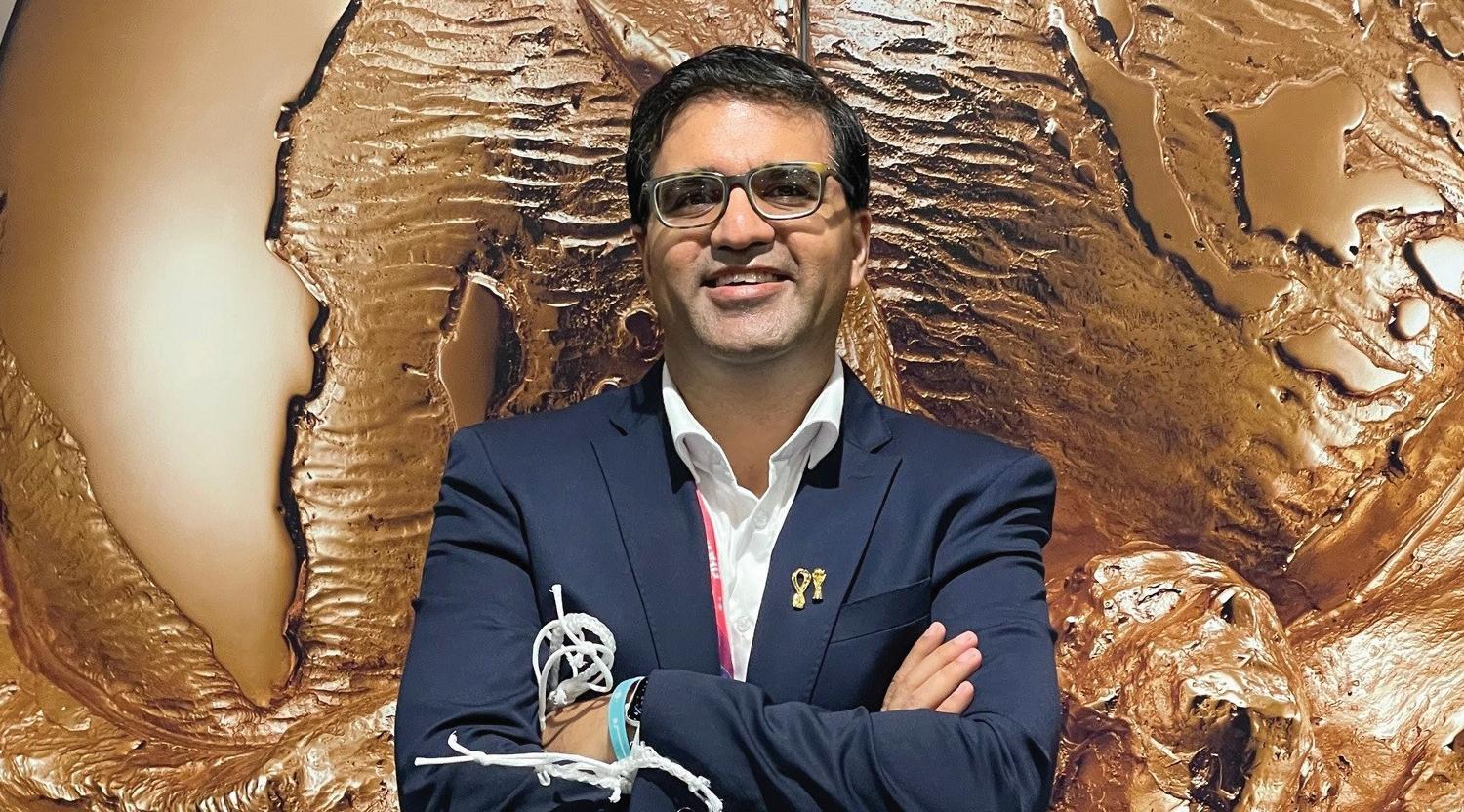
“This Socratic method of learning instilled skills that strengthened more than my law and client advocacy abilities. It gave me key management skills that, in the long run, allowed for greater and broader growth opportunities.”

As exciting as his World Cup experiences were, Wasti is grateful for the slower pace of liquidating and dissolving. But like any star athlete, Wasti is facing the question as to what’s next.
“I am currently looking at everything from a role focused on confederation level soccer (Asia and/or South America), to consulting law firms in Canada and the United States as they advise clients in relation to the FIFA World Cup 2026 in North America, to an extended break to spend more time with my kids,” he says.
Whatever he chooses, Wasti is sure to bring his A-game.










